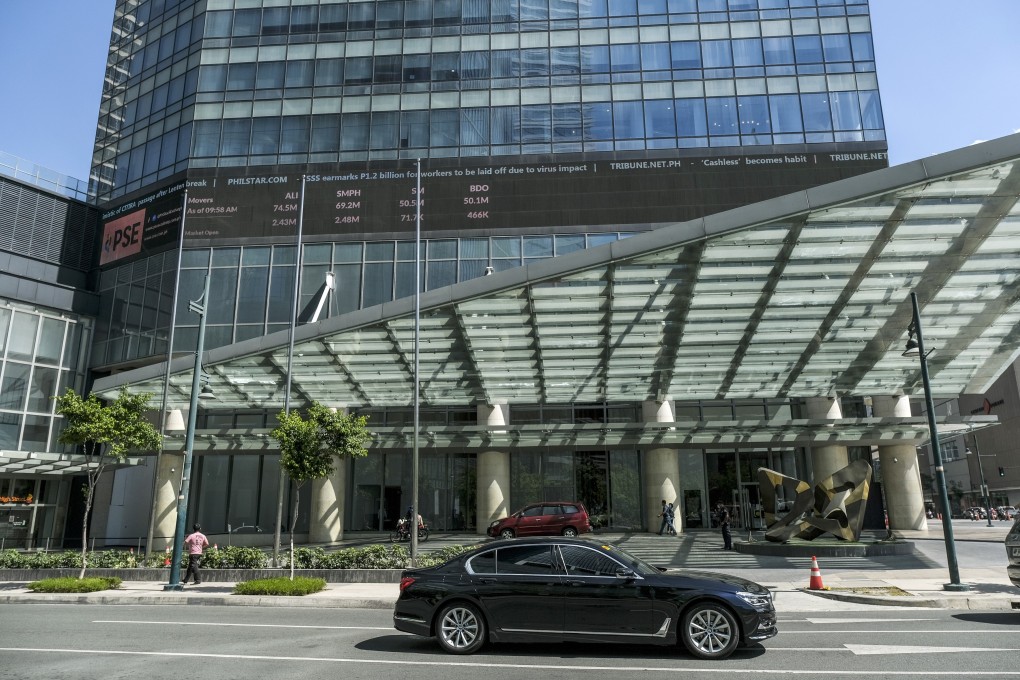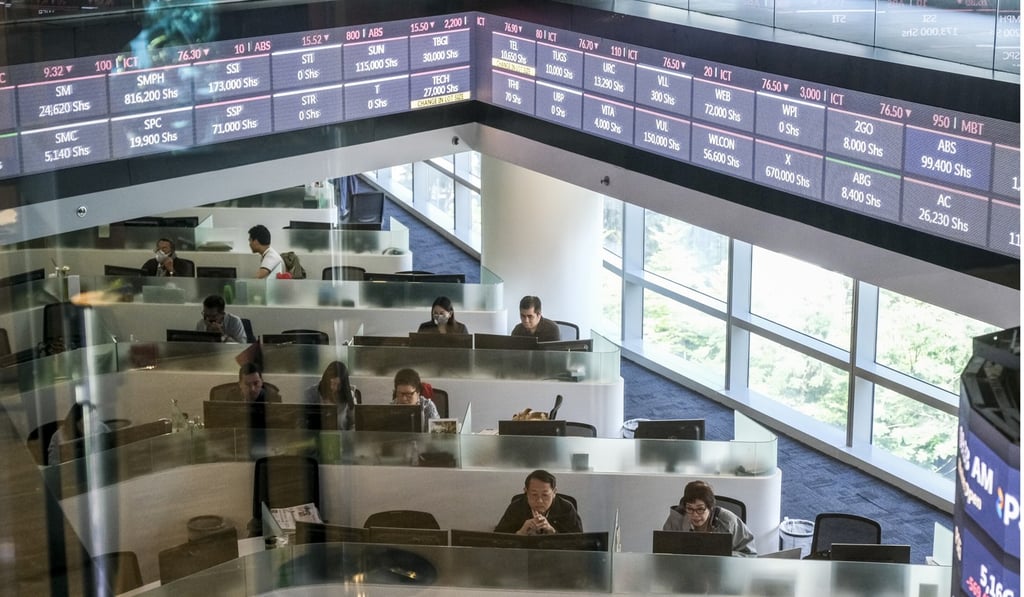Advertisement
Coronavirus: Philippines closes financial markets indefinitely amid pandemic
- The Philippine Stock Exchange is the first to suspend trade until further notice to halt the spread of the Covid-19 outbreak
- This comes as President Rodrigo Duterte widened a month-long lockdown of Manila to the entire island of Luzon, home to 57 million people
Reading Time:3 minutes
Why you can trust SCMP

The Philippines halted stock, bond and currency trading until further notice, becoming the first country to shut financial markets in response to the widening coronavirus pandemic.
The closures take effect on Tuesday, according to statements from the Philippine Stock Exchange and the Bankers Association of the Philippines.
“There will be no trading at The Philippine Stock Exchange, Inc. and no clearing and settlement … until further notice to ensure the safety of employees and traders in light of the escalating cases of the coronavirus disease,” the exchange said.
Advertisement

The moves follow President Rodrigo Duterte’s decision on Monday to widen a month-long lockdown of the capital region to cover the country’s main Luzon island, home to at least 57 million people. The virus has infected at least 140 people in the Philippines and killed a dozen.
Advertisement
Philippine equities have tumbled more than 30 per cent this year, among the biggest declines in Asia, as stocks around the world plunged on fears of a global recession. A US-listed exchange-traded fund that tracks the Philippine market fell by a record 19.5 per cent on Monday after the bourse announced it was shutting.
Advertisement
Select Voice
Choose your listening speed
Get through articles 2x faster
1.25x
250 WPM
Slow
Average
Fast
1.25x